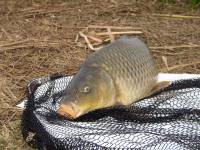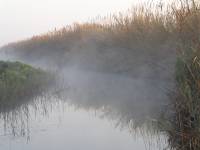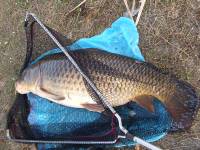Hibernation
The climate at the Costa Blanca is very mild, so that here not a few Central Europeans who are plagued by cold are looking for a warm winter nest. If you like, you can spend the winter with us in one of the two comfortable apartments. Anglers are also welcome, see more below!
The temperatures in December are between 7 and 15 degrees with an average of 4.8 hours of sunshine, and even in the coldest month of February between 5 and 17 degrees with an average of 5.7 hours of sunshine. So you can sit in the sun in your T-shirt at lunchtime.
For the hibernation we offer the two apartments that have already been described under "Equipment". Both apartments are equipped with a heating system (split air conditioning unit, heat pump principle), two beds, a comfortable sofa, a kitchenette with cooking facilities and necessary equipment (crockery, cutlery, cooking utensils) and a refrigerator with freezer. They also have a sun terrace.
The prices are complete prices, only the electricity is charged separately. The meters are located in the apartments, so that you always have an overview of your consumption. The electricity costs are 20Ct/kWh and thus about 25% below the local electricity costs.
Fishing - in the sea as well as inland
Those who want to enjoy the Spanish fish richness will also get their money's worth in the surroundings of our holiday home, especially in the nature reserve of the Marjal de Pego. Besides the rich stocks of carp, there are the very challenging mullets that roam the rivers in big schools of capital specimens.
Those who like it a little more moving as a passionate predator fisherman will also have a good chance of fishing for black bass. At dusk you even have the chance to catch sea bass migrating into the rivers. Allegedly, rich eel stocks are also tempting - we have not yet been able to verify whether this is angler Latin or whether they actually exist.
Anyone who likes trout or zander will love sea and black bass. These are not only fighting strong, but also extremely tasty. Our first attempt with cheap China wobblers ended directly in a well-filled cool box. The two slimmer specimens on the picture (see above) are by the way sea bass, which usually live in the Mediterranean Sea, but apparently also like to rob in the rivers.
Who dares to stay at the water in the twilight (depending on the season there is the danger of an encounter with wild pigs, here fishing close to the car is recommended), can be rewarded with great specimens. On one of the photos you can see a 70cm long 5kg sea bass, which was caught in summer of 2018.
Fishing in the sea is an exciting, but also more difficult challenge, at least if you haven't already had some relevant experience.
The basic rule is: with a sea fishing licence you can fish anywhere in the sea. Except, and this is certainly a bigger drop of bitterness, in the harbours, where you can always see a lot of great fish, and in the high season on the beaches. In the end, there are only lonely bays or the piers that occur every few hundred metres, where smaller fish and squid live.
Fishing there is a dream, but only with the right equipment it is promising: Strong (surf) rods are almost obligatory, and without sailworms from the fishing shop (Koreanos and Americanos) probably no sea bream (also fresh in the fish department of the local supermarket as "dorada" to buy) lands on the table.
If you dare, you can also go hunting by hand. In the last summer vacation (2018) we could observe a French tourist who caught three octopuses with his bare hands...
Before you put the fishing rods in the case, you should consider the license. There are several ways to do this, but the main difference is the cost.
However, one thing must be clear: there is no legal way to fish anywhere without a license, not even in the sea - the information available on the net is outdated! Current information can be found here (as of 1/2019).
Licence for fishing in inland waters
The easiest way is certainly to contact the local fishing club in Pego (contact details available upon request) and purchase a license for river sections leased by some members. This is possible at a daily rate and is around 30€/week. For longer periods it is cheaper to become a member of the fishing club (30-60€/year). In the case of short-term licences, you will be informed that an additional licence from the Generalitat Valenciana is not required. We are not convinced of this and strongly advise you to obtain an official license.
This can be acquired in two ways: First, there are specialized service providers on the Internet who can procure such licenses at relatively short notice (a few days). One of these service providers, which I myself have already used without any problems, can be found at the following address: https://www.licenciascazapesca.com/ .
There you can buy the license for inland fishing (Licencia de pesca Comunidad Valenciana de pesca en río) as well as the license for sea fishing (Licencia de pesca Comunidad Valenciana orilla mar). For someone who is not quite familiar with the use of Spanish, this is definitely the best way that we can help. The costs are (as of 1/2019) about 40€ per year license.
The longer, but also cheaper way is to apply for a license on the country's website (http://www.gva.es/va/inicio/procedimientos?id_proc=681). For both types of licenses you have to fill out forms, pay the fees online by credit card and then you can pick up the license in Spain at a branch of the environmental office (in our case in Pego). Actually this should come even by e-Mail, it did not work with us at least. We are also not sure if you can get licenses without a Spanish tax number (NIE number), the forms are mandatory. Who speaks Spanish and starts early enough, can try this way of course. Here the license for the inland fishing costs 28,56€ for three years and for the sea fishing for five years about 35€.
And when all licenses are obtained and the spinning rod is stowed away, hopefully you will make a good catch!


